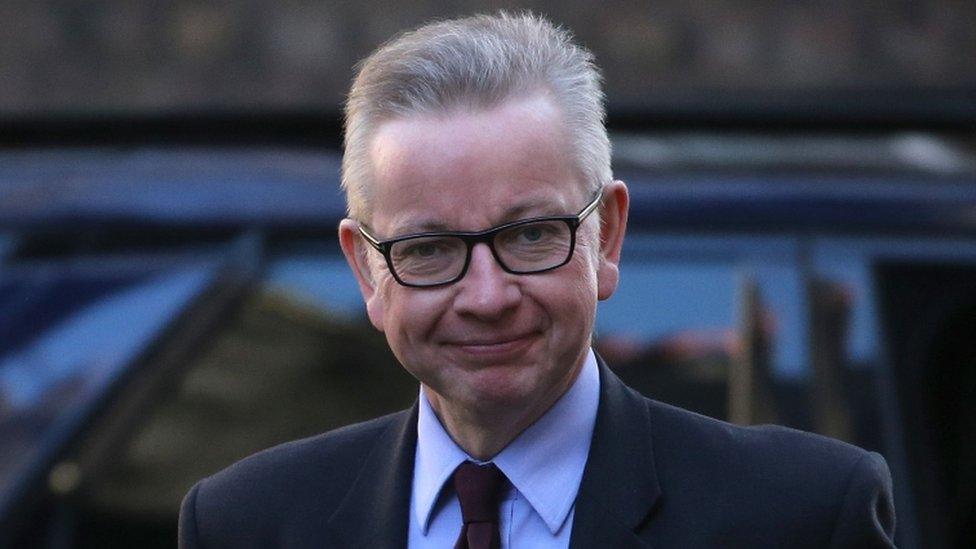Tory leadership contest: Boris Johnson pledges income tax cut for high earners
- Published
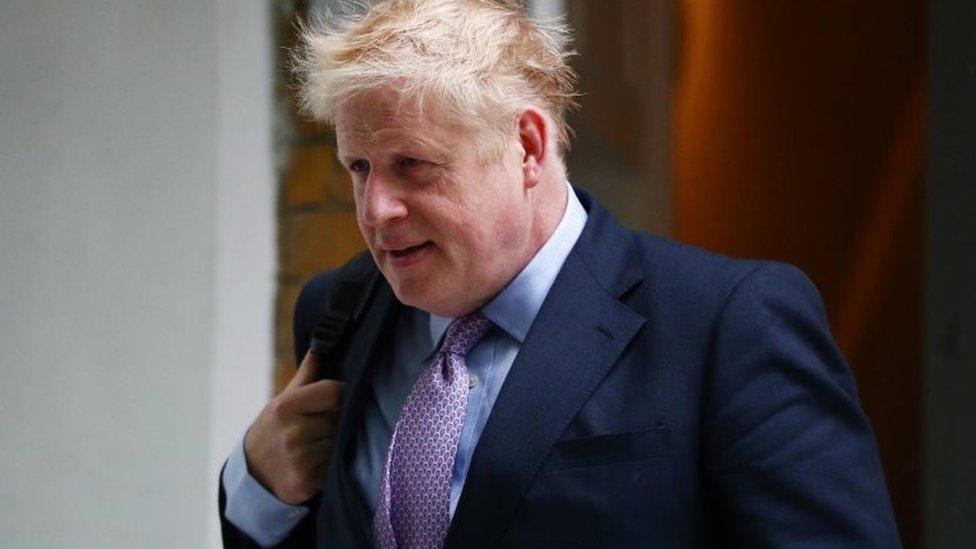
Boris Johnson is frontrunner in the contest to succeed Theresa May
Boris Johnson has pledged to cut income tax bills for people earning more than £50,000 a year if he wins the race to succeed Theresa May as prime minister.
The former foreign secretary told the Telegraph he would use money currently set aside for a no-deal Brexit to raise the 40% tax rate threshold to £80,000.
Labour's shadow chancellor John McDonnell said the proposal showed "how out of touch the Tories are".
Tory MPs have until 17:00 BST to enter the race to become party leader and PM.
Mr Johnson's promise comes as Work and Pensions Secretary Amber Rudd and Defence Secretary Penny Mordaunt both announce they are backing Foreign Secretary Jeremy Hunt for prime minister.
Mrs May officially stepped down as the leader of the Conservative Party last week, but will remain as prime minister until her successor is chosen.
Conservative MPs who want to replace her must have the backing of eight other party colleagues to officially enter the contest.
But Michael Gove, one of 11 to have said they plan to run, has faced calls to drop out of the race after he admitted using cocaine several times more than 20 years ago.
Michael Gove: Cocaine use "was a crime and a mistake"
Former party chairwoman Baroness Warsi said it would be "hypocrisy of the highest order" for Mr Gove to remain in the contest, after an article he wrote in 1999 in which he criticised "middle class professionals" who took drugs was republished.
Apologising on the Andrew Marr Show on Sunday, the environment secretary said he was "fortunate" to have avoided prison.
And at his campaign launch on Monday, Mr Gove is expected to insist he is "undaunted" by criticism, and will say he can both deliver Brexit and "stop Jeremy Corbyn ever getting the keys to Downing Street".
Meanwhile, Mr Johnson told the Telegraph he planned to cut income tax bills for three million people, partly by using money from a pot set aside by the Treasury for a possible no-deal Brexit, and partly by increasing employee National Insurance payments in line with the new income tax threshold.
The paper estimates, external the move announced by Mr Johnson, who is not doing any media interviews, would cost £9.6bn a year.
"We should be raising thresholds of income tax so that we help the huge numbers that have been captured in the higher rate by fiscal drag," said Mr Johnson, who gets paid £79,468 as an MP.
Paul Johnson, from think tank the Institute For Fiscal Studies, told BBC Radio 4's Today programme higher rate taxpayers would receive a "quite significant tax cut" under Mr Johnson's plans - but the biggest beneficiaries would include wealthy pensioners, and people living solely off investments, as neither pay National Insurance.
And shadow chancellor Mr McDonnell said the Tory leadership contest was becoming a "race to the bottom in tax cuts".
He said: "With our schools, care for the elderly and our police services at breaking point, Boris Johnson's proposals to give a tax cut to high earners reveals how out of touch the Tories are."

Current tax bands in England, Wales and Northern Ireland
Income of up to £8,632: Individuals pay 0%
£8,632 - £12,500: 12% (National Insurance only)
£12,500 - £50,000: 32% (Income tax at 20%, NI at 12%)
£50,000 - £100,000: 42% (Income tax at 40%, NI at 2%)

Justice Secretary David Gauke, a former chief secretary to the Treasury, tweeted, external that Mr Johnson's tax announcement was the "wrong priority".
Former Commons Leader and leadership contender Andrea Leadsom told BBC Radio 4's Today programme that "in reality, in this Parliament, it would be impossible to actually get wholesale tax changes through".
And Dominic Raab launched a direct attack on Mr Johnson's proposal at his leadership launch, saying he would rather cut the lowest paid's taxes rather than what would be interpreted as "the caricature that you're the party of privilege and you are only in it to help the wealthy".
Tory MP Nicky Morgan, who chairs the Treasury Select Committee and is backing Mr Gove in the leadership contest, said: "The question for Boris is, why is this a priority when you could be obviously lifting more people out of paying income tax - the lower rate taxpayers - or you could be give people receiving child benefit an extra £15 a week?"
She added Mr Gove had been "very candid about having made a mistake and he is right to say people shouldn't be defined by the worst mistakes they have made".


Now the contest proper gets under way. This is the week where we really will get a chance to start looking at people's policies.
It's very hard to see how a cut in income tax for wealthier earners would fly through Parliament, but there are going to be all sorts of proposals like this.
So there will be - whatever big headlines are flying around at the top of this noisiest wave of the campaign - proper debates on the direction of the party and, therefore, the direction of the government too.
Should they, as Boris Johnson would suggest, cut the income tax for wealthier earners, which we know is the antithesis of what some of his colleagues would like to do?
Or should they be going in a different direction and try to increase pay for people at the bottom end?
These are all tensions that are alive and well in the Tory party.

Ms Rudd, leader of the centrist One Nation Conservative Caucus group and an influential voice on the Remain-supporting wing of the party, told BBC Radio 4's Today that Jeremy Hunt was "the best shot we have at breaking this impasse" on Brexit.
She said anybody who says the UK is leaving by 31 October "come hell or high water" and does not have the relationships to bridge the differences in Europe "is just taking us towards a general election".
Of Mr Hunt's view, expressed on Sky's Sophy Ridge on Sunday, that the legal limit for abortion should be reduced from 24 weeks to 12, Ms Rudd said it was his "personal, private view".
"That has always been his view," she said. "I have spoken to Jeremy and there will no change to abortion law if and when he becomes prime minister."
Launching his campaign for leader on Monday, Mr Hunt said the challenge of Brexit called for an "experienced, serious leader", not "empty rhetoric".

Who will replace Theresa May?
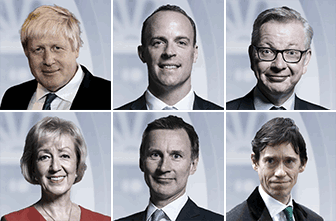
The winner of the contest to lead the Conservative Party will become the next prime minister.

As the nominations officially open:
Health Secretary Matt Hancock told his launch "we need a fresh start" and he believed it was up to government to unlock people's potential
Former Brexit Secretary Dominic Raab unveiled proposals to redirect £500m a year from the aid budget to create an international wildlife fund to save endangered species and habitats
Esther McVey launched her campaign at a fringe event, saying "we have nothing to fear" from a no-deal Brexit
Home Secretary Sajid Javid picked up further support, with ministers Caroline Nokes and Victoria Atkins choosing to back him after Scottish Tory leader Ruth Davidson announced her support on Saturday
Mark Harper and Andrea Leadsom will also launch their campaigns on Monday
Sam Gyimah says as prime minister he would help young people get on the housing ladder by slashing stamp duty and creating at least a million new homes in five years
Rory Stewart used a video message to insist he would not back down in his battle to become Conservative leader
BBC political correspondent Chris Mason said five of the candidates appeared to fall short of having eight supporters - the number required to put themselves forward in the contest.
However, he noted many Tory MPs had yet to declare who they were backing.
Whereas candidates in the past would have only needed two MPs supporting them, senior Tories decided to change the rules earlier this month in a bid to speed up the contest.
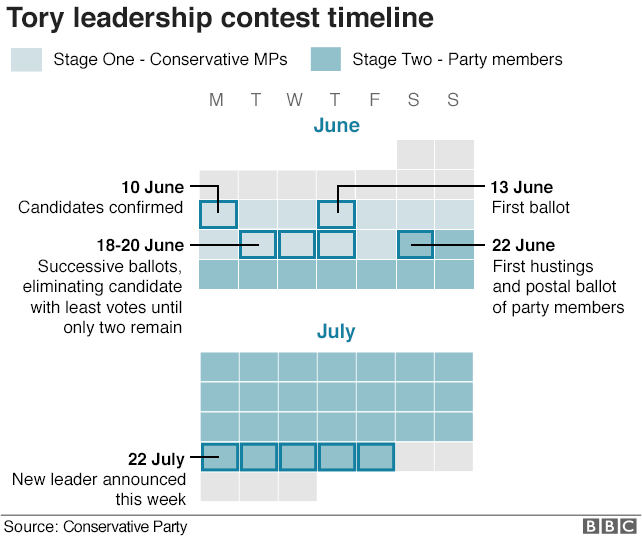
After nominations close, all 313 Conservative MPs will vote for their preferred candidate in a series of ballots held on 13, 18, 19 and 20 June to whittle down the contenders one by one until only two are left.
Due to another rule change, candidates will need to win the votes of at least 16 other MPs in the first ballot and 32 colleagues in the second to proceed.
The final two will be put to the 160,000 or so members of the wider Conservative Party in a vote from 22 June, with the winner expected to be announced about four weeks later.

On Tuesday 18 June BBC One will be hosting a live election debate between the Conservative MPs who are still in the race.
If you would like to ask the candidates a question live on air, use the form below. It should be open to all of them, not a specific politician.
If you are reading this page on the BBC News app, you will need to visit the mobile version of the BBC website, external to submit your question on this topic.
- Published10 June 2019
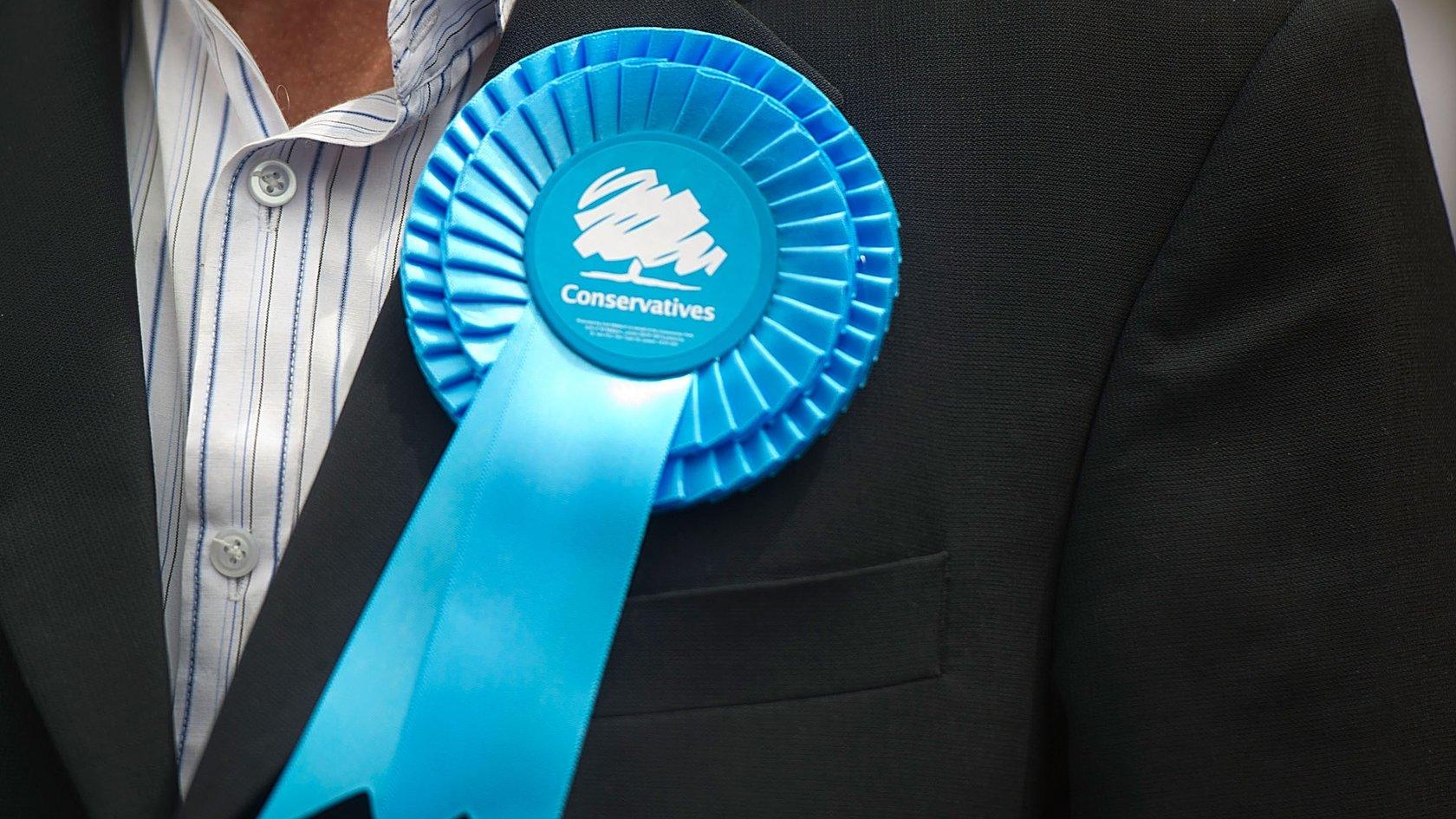
- Published10 June 2019
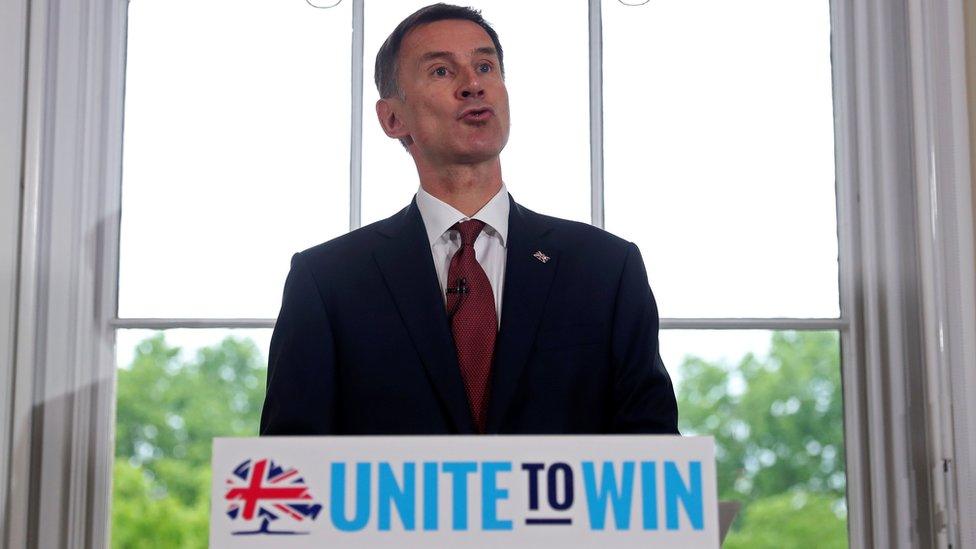
- Published9 June 2019
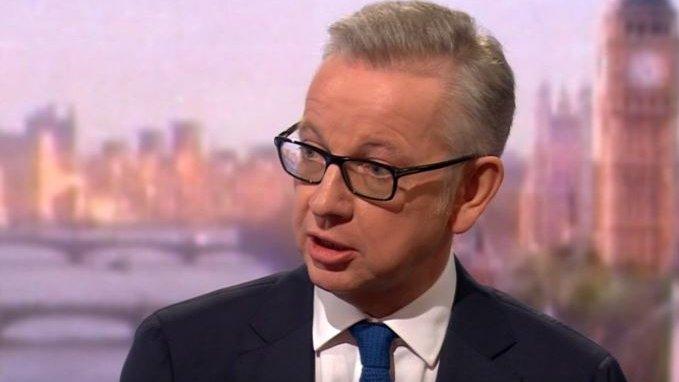
- Published9 June 2019
